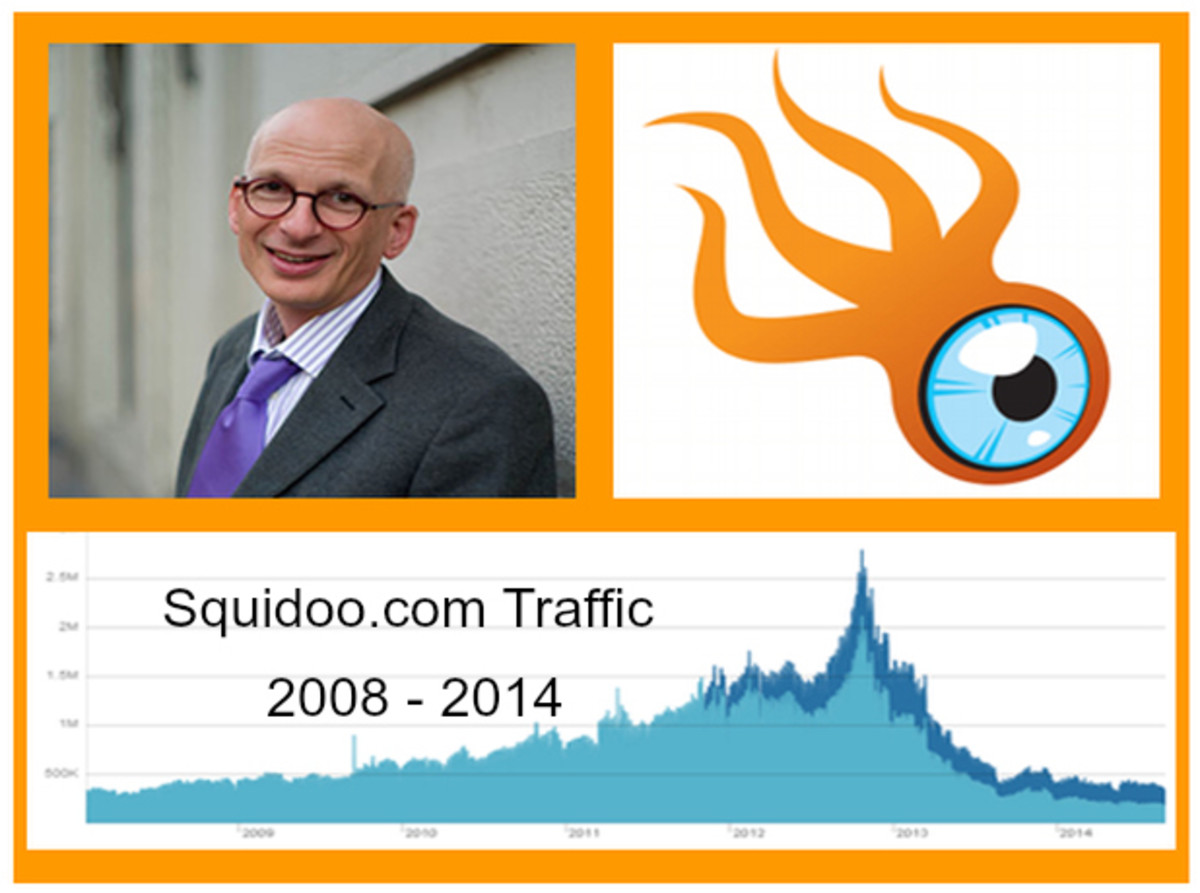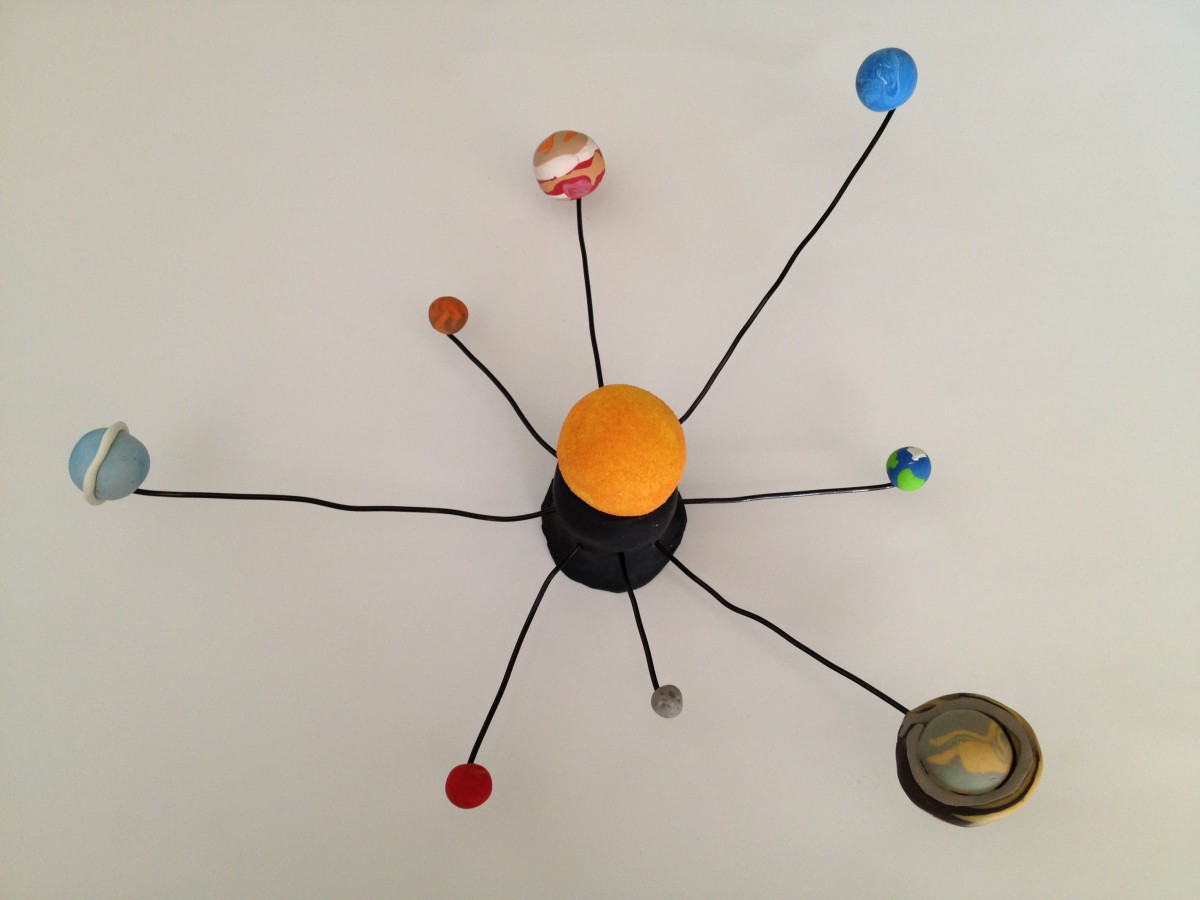The Nonsense of Backlinks
Don't fall for this backlink hooey
Hooey is another word for nonsense. Prepare to wear out your thesaurus while reading this thesis. The nonsense of using backlinks to increase site traffic must be exposed. Too many well-meaning bloggers, hubbers, writers, composers, and scribes fall prey to absurd advice. Better to waste your time looking up synonyms for the word nonsense rather than randomly harvesting ineffective backlinks.
What is a backlink?
Assume you have a web page filled with soaring purple prose. It's funny, insightful, inspiring, and entertaining; everything Congress is not. No one reads it because no one except your parents knows it exists. It's lost in the billions of bytes populating the Internet. Your parents can only click on your ads so many times before Google turns off your AdSense account and you must go scrounging for another social security number. Anyway, that's a topic for another article.
You have this wonderful page that needs traffic. Theoretically you should be able to coerce Google to index your site and then fall in love with it. Google will provide you traffic by serving up your site when Internet surfers use their famous search engine. Some say Google falls in love deeper and quicker if your site has copious backlinks. Of course, that's mostly nonsense. We will explain.
A backlink represents a totally different web site that contains a link pointing to your page. Typical backlink sources are Twitter, Squidoo, Blogspot.com, and trillions of helpful fee-for-service organizations that will happily edit their sites to link back to your epic page. Googling the term "backlinks" results in "about 11,900,000" hits. A bunch, I'd say. By contrast, "baseball" results in 140,000,000 hits. Statistically, backlinking is 8.5% as important as baseball. That doesn't support our thesis but is it nonetheless interesting if you happen to be an aficionado of applied statistics.
Why doesn't a backlink matter?
Backlinks matter.
Hey! Didn't the title of this article assert that backlinks are nonsense?
OK, OK. Backlinks matter sometimes. Now that we have a wimpy middle of the road revised thesis, let's examine both sides of the backlink coin. Remember, one side is nonsense and the other side represents Google AsSense nirvana. It's backlink babble vs the kind of Internet riches that we can only read about.
OK, why do backlinks matter?
Google cares about some backlinks because they represent a measuring device that cannot be controlled by you. You can't add a link from IBM.com to your page. If IBM.com does link to your site, then Google assumes that IBM.com sees some perceived value in your site. Somehow IBM.com has been convinced to vote for your page.
This type of backlink matters because it increases Page Rank. Naturally we are begging the question "What's Page Rank?" Read about that here, but promise to finish this article when you're finished.
A backlink is a vote
Backlinking is analogous to voting. A site that backlinks to you is telling Google that your page is worthy of consideration and merits a higher Page Rank. If you can coerce a site with a high Page Rank to vote for your page by backlinking to it, you stand to reap great rewards in cyberspace unless that site has already voted for too many other sites.
The highest Page Rank is 10. IBM.com has a Page Rank of 8. HubPages.com comes in at 6. The scale is exponential, like the Richter Scale. A Page Rank of 2 is 10 times better then a Page Rank of 1. The Holy Grail of backlinking would be to have the only backlink from a site with a Page Rank of 10. That kind of endorsement would let Google know that you have a wonderful web page deserving of high praise by their search engine. Of course, you may as well ask Madonna to put on a concert while wearing a Snuggie. It ain't gonna happen.
Backlinks dilute
The value of any given backlink is a function of Page Rank and number of backlinks. A site that includes hundreds, thousands, or millions of backlinks has greatly reduced the value of each individual backlink. Your page may be the happy beneficiary of such a backlink, but a fat lot of good it will do you; the thing will be so diluted as to be virtually meaningless in Google calculations.
Don't take my word for it
Here's your homework:
http://infolab.stanford.edu/~backrub/google.html
This is the original published definition of Google. Download it, read it, annotate it, internalize it, own it. Authors Sergey Brin and Larry Page thank you for your interest. I'm going easy on you; this is the short version of the paper.
Larry refers to a backlink as a citation. One wonders what he thinks about the nonsense that has been generated from his original paper. It's doubtful he foresaw any of the antics.
Extra Credit:
Here's the original formula for calculating Page Rank:
PR(A) = (1-d) + d (PR(T1)/C(T1) + ... + PR(Tn)/C(Tn))
Figure out a way to exploit it, then get back to me. I'll only take 10%.

Caveat Emptor
No one person truly knows how Google ranks pages or how Google serves up search results. Keywords, backlinks, Page Ranks, Time and Temperature, PAC 10 football standings, and multidimensional hypercubes of eigenvectors probably all play a part. The pressure to cut through backlink nonsense in order to develop a tiny useful iota of information that exploits Google search results has proven enormous. What works today might not work tomorrow. Today's success story may actually impede progress tomorrow. Google constantly refines algorithms in order to provide their customers (you) with quality search results. Of course, 'quality search results' is completely arbitrary.
Google is publicly traded, therefore they face pressure from investors to generate revenue. Does that pressure play a part in how results are calculated? Let's make that another homework assignment, OK? Get back to me.








